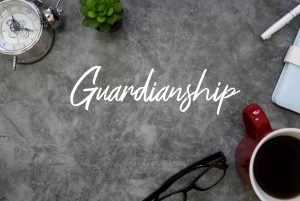 In situations where a person is in need of assistance with handling personal needs or property management, the New York law provides for the appointment of a guardian. Article 81 of the Mental Hygiene Law (MHL) contains the statutory and procedural rules regarding guardianship appointment and operation.
In situations where a person is in need of assistance with handling personal needs or property management, the New York law provides for the appointment of a guardian. Article 81 of the Mental Hygiene Law (MHL) contains the statutory and procedural rules regarding guardianship appointment and operation.
Essentially, under MHL 81.02, a guardian may be appointed when it is found necessary to provide for a person’s personal needs or property management. Usually, a determination of incapacity is needed. Incapacity must be shown by clear and convincing evidence and involves a finding that a person will suffer harm because they cannot understand and appreciate the extent of their disability. The New York Probate Lawyer Blog has published many articles discussing different aspects of the guardianship law and process.
A guardianship must be commenced in the Court and all interested parties need to be notified. Typically, the Court will appoint an attorney to represent the alleged incapacitated person and also a Court Evaluator. The Court Evaluator investigates the facts and circumstances surrounding the guardianship petition and provides the Court with a report and recommendations. MHL 81.21 lists various property management powers which can be given to the guardian. MHL 81.22 lists various personal needs powers which a guardian may have.
One of the most interesting and innovative aspects of the guardianship law is that the Court is given broad discretion and flexibility with regard to the parameters of any determination as to the imposition of a guardian’s control. MHL 81.02 provides that a guardian should only be given powers which are the least restrictive form of intervention. In fact, MHL 81.03 defines “least restrictive form of intervention” which essentially directs that guardianship powers should only be those that are necessary and that preserve a person’s independence.
Thus, the appointment of a guardian is not an all-or-nothing determination. The Guardianship Court may structure the appointment to cover only some powers which are needed while allowing a person the freedom to act independently with regard to other aspects of his life. Guardianship Courts tend to be very hands-on in this approach, and protective of the rights of someone who is alleged to be incapacitated.
Sometimes, the Court determines that a person is not incapacitated but does need a form of assistance with various activities of daily living. In these cases, the Court may find a person to be in need of supervision, but not incapacitated. A guardian may be appointed to assist a person but not entirely take over all aspects of property management or personal needs decisions.
I have been a guardianship lawyer for over 40 years and have represented clients in these cases throughout New York. Some matters may be more complicated than others and guidance from experienced legal counsel can be essential. Call Me Now for a free confidential review of your guardianship issue. We offer reasonable and flexible fee arrangements and personal representation.
New York Trusts and Estates Attorney Jules Martin Haas has helped many clients over the past 40 years resolve issues relating to guardianship and probate and estate settlement throughout New York City including the Bronx, Queens, Brooklyn, Manhattan, Nassau and Suffolk County. If you or someone you know has any questions regarding these matters, please contact me at (212) 355-2575 for an initial free consultation.
 New York Probate Lawyer Blog
New York Probate Lawyer Blog

